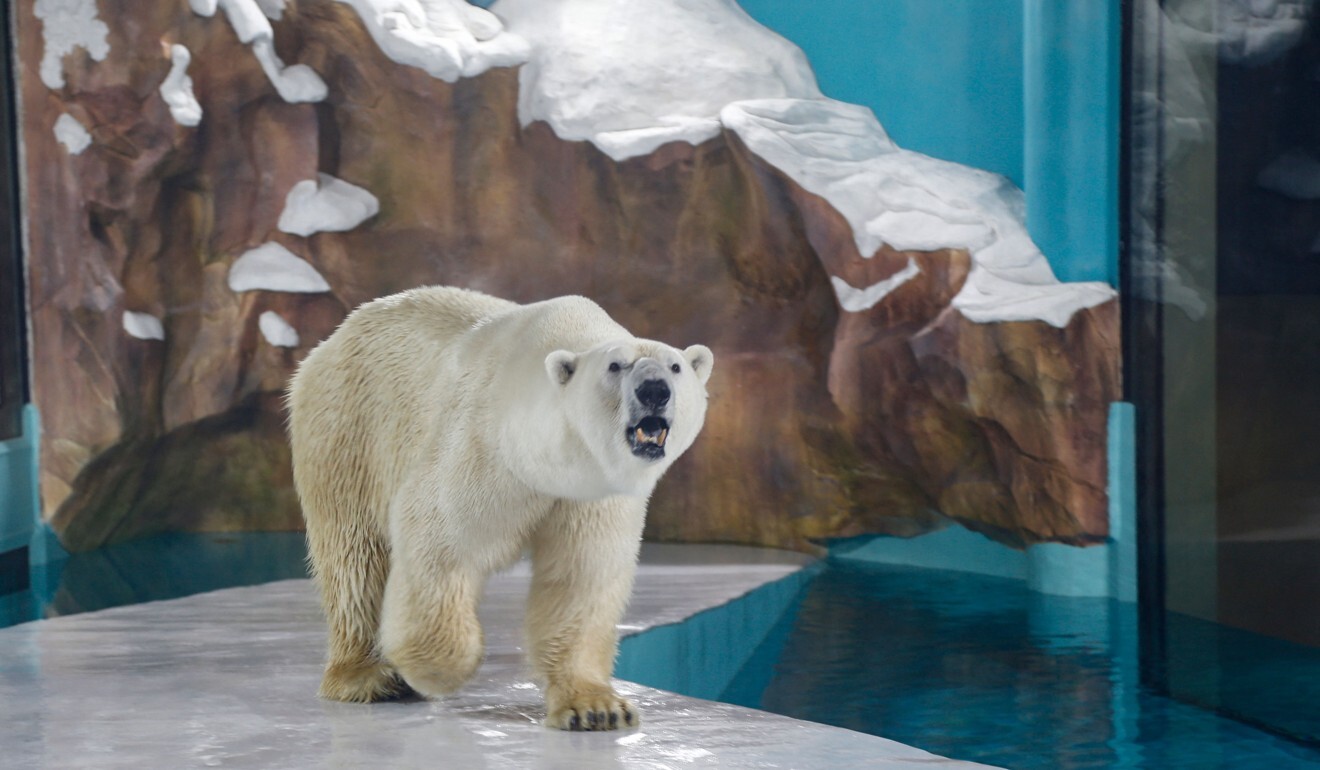
Chinese hotel that offers polar bears as ‘neighbours for 24 hours a day’ slammed for cruelty
- The hotel in the northeastern city of Harbin is built around an enclosure where the animals are kept under harsh lights
- Animal rights activists urge customers to stay away from an establishment that seeks to ‘profit from animals’ misery’
A Chinese hotel built around a central polar bear enclosure for the non-stop viewing pleasure of its guests opened Friday to immediate condemnation from conservationists.
At Harbin Polar Land in northeastern China, the hotel bedrooms’ windows face onto the bears’ pen, with visitors told the animals are their “neighbours 24 hours a day”.
A video shows the bears – a threatened species – photographed by crowds of guests under harsh warm lights, in a space consisting of fake rocks and icicles, and a white painted floor.
Animal rights organisations reacted with outrage, urging customers to stay away from establishments profiting “from animals’ misery”.
Chinese merry-go-round with live ponies sparks claims of cruelty
“Polar bears belong in the Arctic, not in zoos or glass boxes in aquariums – and certainly not in hotels,” said PETA Asia’s vice-president Jason Baker.
In the wild, polar bears usually roam territories that can span thousands of kilometres, Baker added.
Harbin is famous for its ice-carving festival, and the hotel resembles a giant igloo, with its roof topped by artificial ice. But some Chinese social media users expressed unease at the theme being taken to this extreme.
“A panoramic prison for polar bears … haven’t we learned anything about animal cruelty?” one commentator said.

“Gaps in China’s wildlife protection law allows businesses to exploit animals without any concern for their welfare,” a spokesman for China Animal Protection Network, who declined to be named, said.
Chinese authorities recently changed the law to ban the consumption of wildlife for food, after speculation over the origins of the coronavirus nudged investigators towards a Wuhan market selling animals.
But the use of parts of endangered species in traditional medicine remains rampant, and Chinese circuses and zoos are often criticised for poor standards in animal housing and care.

.png?itok=arIb17P0)